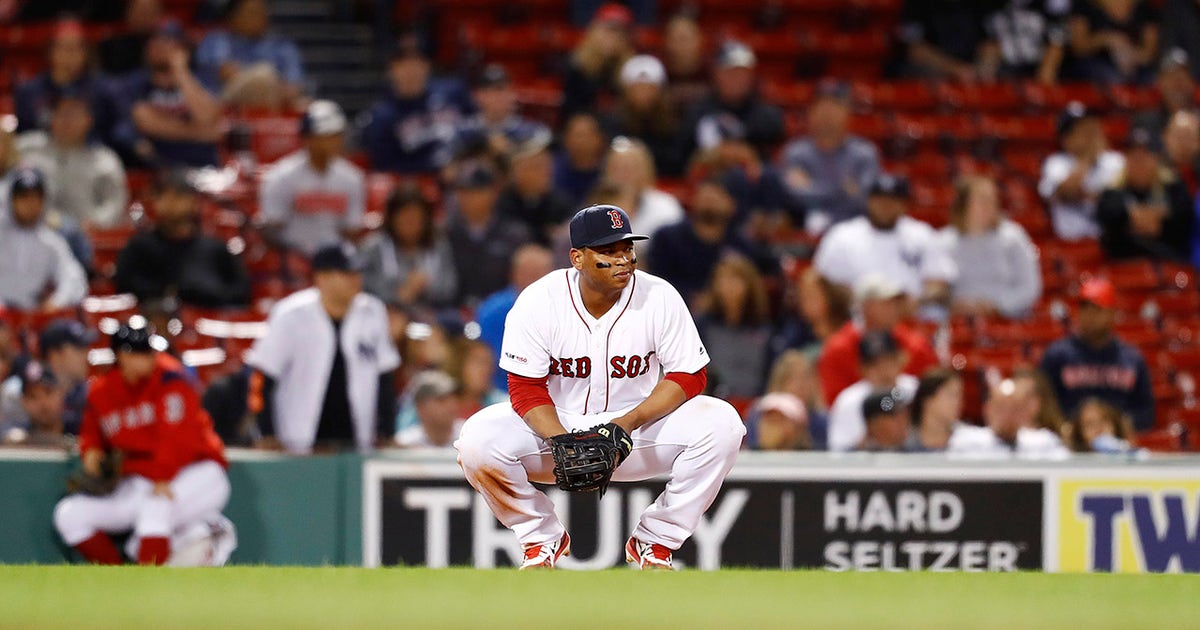The Red Sox paid the price of winning in Boston


If you spend big, you’d better deliver big — consistently.
Red Sox team president Dave Dombrowski delivered a World Series title last October and three division titles before it, but that still wasn’t enough for a city that has gotten used to the idea of championship parades as an annual tradition.
Boston parted ways with Dombrowski as Sunday night turned into Monday morning, firing him suddenly in a move that says everything about how Major League Baseball teams value their future potential far more than they appreciate their recent past.
Lavish spending and the job security of baseball’s general managers are completely intertwined, in a complex, tangled and often illogical way. Dombrowski spent and spent and spent some more, and when the Red Sox rose up from back-to-back last place finishes to become first a genuine contender and then world champions, it all seemed worth it.
Right up until it didn’t any longer. Know this: the decision to let Dombrowski go had nothing to do with how the Red Sox brass viewed his ability to build a winner, but with their doubts about whether he can get out from under the financial burden of the winner he’d already pieced together.
“They brought him in there with the mandate to go and win championships,” ESPN baseball expert Jeff Passan said on Monday. “He traded away the farm system; the system right now is not very good. He went out and spent money … did all the things that the Red Sox seemingly wanted him to do. And now he ends up out on the street.”
Remember that scene in the movie Moneyball, where Arliss Howard, playing Red Sox owner John W. Henry, wooed Brad Pitt’s Billy Beane at Fenway Park, gushing over how he had created winning teams at a fraction of the cost of other teams?
The #RedSox today announced that they have parted ways with President of Baseball Operations Dave Dombrowski.
Full Release: https://t.co/6sbF6a7G7R
— Red Sox (@RedSox) September 9, 2019
In reality, it didn’t quite go down like that, but Henry was interested enough in a Moneyball-based approach to extend Beane an offer to become baseball’s highest-paid general manager. Ultimately, Beane stayed in with the Oakland Athletics — and remains there to this day, continuing to exploit market inefficiencies in ways that wouldn’t necessarily translate to Boston, where being the Red Sox demands flexing your muscles against the New York Yankees, both at the ballpark and in the fiscal spending stakes.
Years after that Billy Beane courtship, when Dombrowski was hired in 2015, the blueprint was for a Moneyball of a different kind — as in, spend as much money as you can to land the best ballplayers in the business and go hunting for hardware. The Red Sox have spent well over $2 billion in payroll since Henry bought the team.
(As an aside, at the moment, the 2019 A’s are half a game ahead of the Cleveland Indians for the second American League Wild Card spot. The Red Sox are eight games behind Oakland, and their elimination number is down to 11. Another set of numbers that looms large: Boston’s $229 million payroll, the largest in MLB, compared to Oakland’s $93 million team — coming in at No. 25 out of the 30 teams in baseball. Only the Tampa Bay Rays are out-Moneyball-ing Beane’s Moneyball: their $63 million payroll is the lowest in the majors — and they’re sitting pretty atop the Wild Card standings.)
Dombrowski got the job done last season, producing the winningest team in franchise history. But to get there, he sent the Red Sox’s top prospects spinning off around the league in trades and ultimately saddled the team with brutal payroll commitments.
David Price is still owed $96 million over the final three years of a bumper $217 million contract that he has not managed to live up to — although nearly no pitcher alive could. Chris Sale is out for the remainder of this season due to left elbow problems, and will next year kicks off his five-year extension worth an annual $29 million. Nathan Eovaldi pitched his heart out during the World Series and landed a $68 million contract as a result, but has been unable to meet expectations.
That’s a lot of money tied up in uncertain arms, before even getting to the offense.
The prospect of lavishing money upon Mookie Betts to retain his services looms large, with the outstanding right fielder able to hit free agency after next season. Letting Dombrowski go months after one of the most cherished triumphs in Red Sox history sent shockwaves around the league, and in the club’s own locker room.
“This is proof that this is a business,” Betts told reporters. “I love it here, but (it’s) definitely still a business.”
Mookie Betts revealed last night how Dave Dombrowski’s departure from the Red Sox will affect his approach to a potential bout with free agency. https://t.co/mt1sDIFnAN pic.twitter.com/xNYpSgJrxX
— NESN (@NESN) September 9, 2019
The advantage of being the Red Sox is that there is money to spend, and theirs is an organization that many players like the idea of joining. The flip side is that there is no Houston Astros-style reset option — no scenario where spending years tanking in the name of building a future foundation is in any way acceptable to Red Sox Nation. But winning that way comes at a price — and it’s a price Boston was already having to pay, with more to come.
And for those seeking it, the writing was on the wall. Dombrowski built a World Series champion in Miami, followed by a monster lineup with the Detroit Tigers that ended up falling off a cliff under the weight of bloated salaries handed to Miguel Cabrera and others. If Henry was nervous about seeing the latter outcome repeat itself, the evidence of this season so far would have fueled his concern.
Having gone all out last year, this time around Dombrowski had few cards left to play. So the Red Sox stood pat at the trade deadline, while the Astros dealt big in search of glory. Boston lost eight straight games after the deadline, essentially torching its remaining hopes. Dombrowski’s breathing room narrowed and ultimately evaporated altogether.
“You look at his track record and it’s … ’wow,’” manager Alex Cora said. “The expectations here are to win a championship every year. Is it fair? No. But I’m a fan of different sports, different teams – that’s what I want from my teams. We live in a city where the standards are set very high.”
High indeed. Dombrowski departed with the team floundering in the Wild Card and eliminated in the East — 18.5 games behind the suddenly juggernaut New York Yankees. It has been a disappointing season — especially considering last October. A record of 76-68 would hardly be a disgrace to the majority of MLB fanbases. But in Boston, that winning record is shameful enough to get the GM of the reigning champions canned. Tough gig.
We will see where the Red Sox go from here. Baseball in Boston knows that success doesn’t come cheap, or easy. And for general managers, success will buy you neither happiness nor job security.
Red Sox pitcher Eduardo Rodriguez reacts to the team’s 5-0 loss against the Yankees. https://t.co/CRukEiNRjn pic.twitter.com/bNOJDxkPvu
— NESN (@NESN) September 10, 2019






